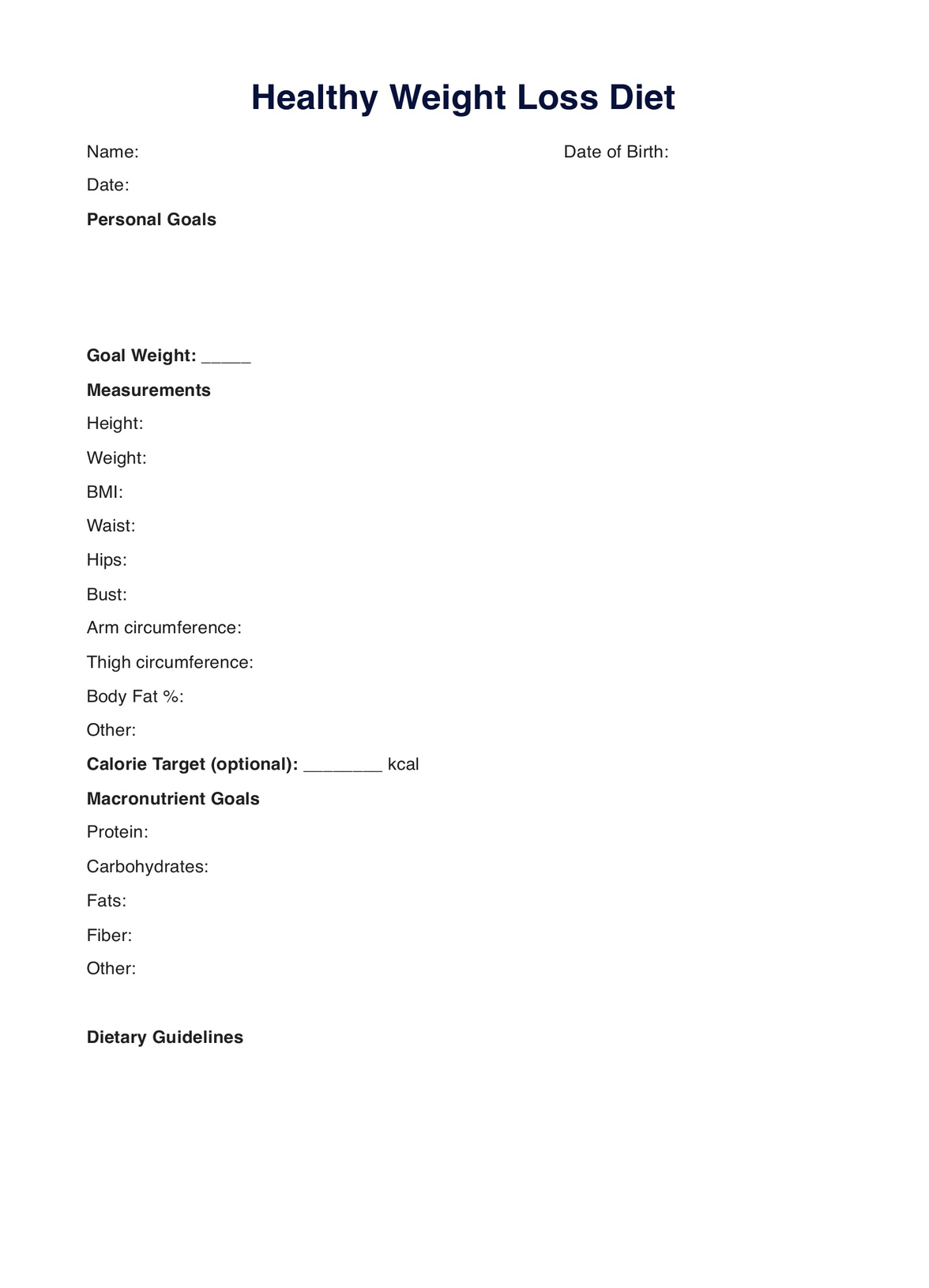A good weight loss plan is tailored to your client’s needs, achievable, sustainable, and includes specific goals and dietary guidelines to help ensure success. We’ve taken the guesswork out of designing a good weight-loss plan with our Health Weight Loss Diet Plan template.












